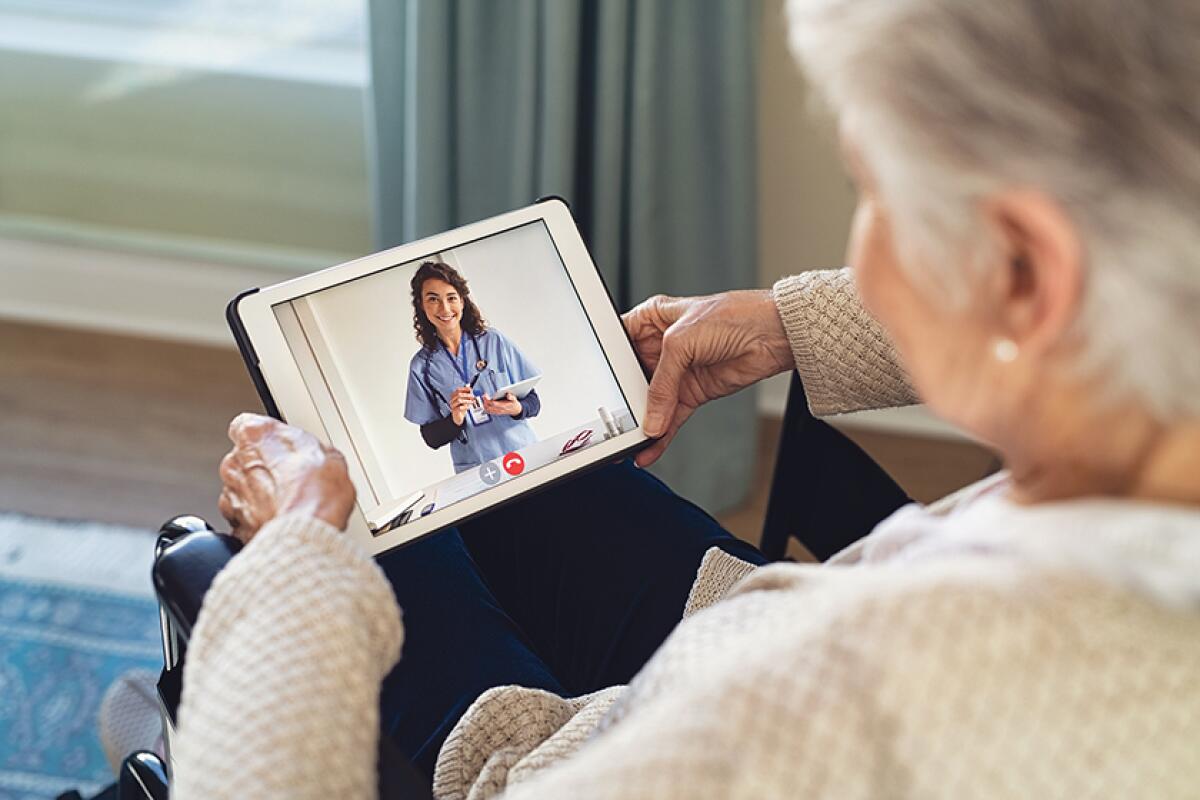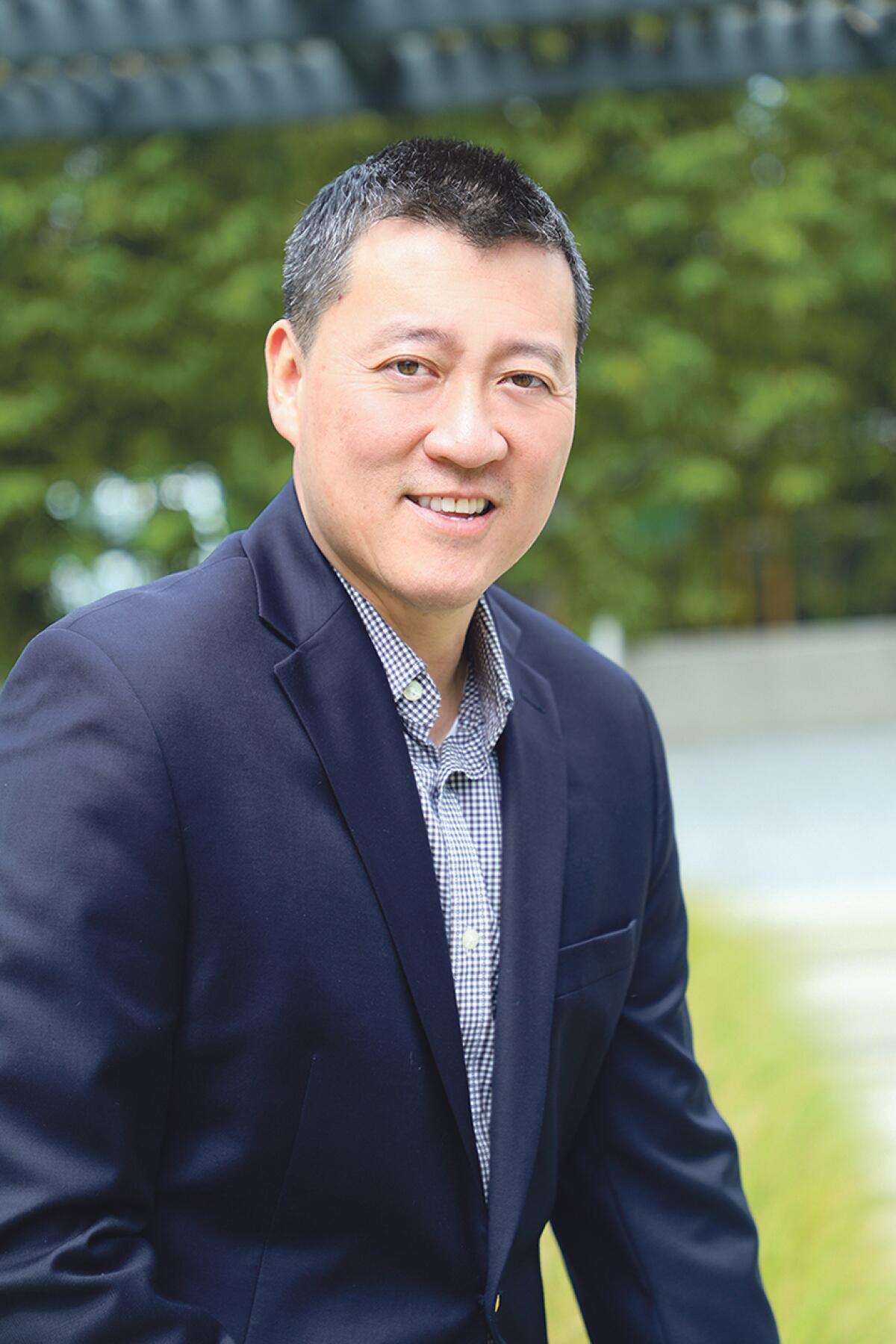Wellness, Evolved: Optum Looks Beyond Pandemic and Towards an Advanced, Personal Health Model

- Share via
Massive, life-altering disruption - is there any other way to describe the last three years? From delayed celebrations to self-isolation, from putting off vacations to working from home, from seeking goods and care remotely to a myriad of other rapid changes, COVID-19’s impact has been felt in every facet of life.
This disruption was perhaps most apparent in the standard model of healthcare, where everything from routine wellness checkups to important screenings like mammograms or colonoscopies were delayed for years.

Yet, from the gloom of restriction, uncertainty and anxieties came rapid, profound change in the operations of healthcare, says Dr. Derek H. Chao, Chief Medical Officer of Optum’s Pacific West region and medical doctor for over 20 years. “Once COVID hit, and the restrictions went into place, we innovated very quickly,” said Chao, underscoring the rapid approach health providers took towards the pandemic. But the years of COVID restrictions occurring during vaccine development and rollout still placed severe limitations on health care’s availability.
Now, Optum, a medical care provider with locations throughout California, is rapidly returning to its pre-COVID model in ways that are both familiar and forward-looking, while maintaining the patient-centric approach it is known for. What’s most important, says Dr. Chao, is the total health picture of the individual, regardless of if they are active and healthy or facing more complex health issues.
Immediate Changes, Lasting Effects
The pandemic changed the status quo of health care immediately, with severe restrictions on office visits, hospital care, and even regular scheduled checkups and screenings. In-person visits, favored by physicians and many patients, were instantly a non-starter. What were the options? “A lot of our plans to innovate in the next two to five years, we pulled together in two months,” said Chao. Beginning in March 2020, concepts as simple as telephone consultations and as advanced as a HIPAA-compliant tablet system and portal for health care providers and users were immediately rolled out. Things that were once future agenda items for Optum were initiated almost instantaneously. This, said Chao, allowed for a stopgap between necessary-yet- restrictive patient care and a post-COVID world. But this innovation has not been shelved now that those restrictions have eased. Optum’s many ways of delivering care remain and have become important components of the “new normal” post-pandemic. “I think now that one of the best things, the silver linings, is that there’s now so many different access points patients can use to receive care and for providers to deliver care,” said Chao.
“You can get the care you need literally without leaving your living room.”
With so many different options for contact, a patient utilizing Optum has a combination of peace of mind and convenience that would be unheard of during the pre-pandemic “one-location, one-form-of-care” model of just three years ago. For seniors with limited mobility in an increasingly congested California, or for professionals splitting their time between life, kids, and a hybrid work environment, this can mean the difference of getting that checkup or inquiring about that new ache or pain or ignoring it. And, as experts have pressed, regular contact with a physician simply leads to better health outcomes.
Painting a New Total Health Picture
All this convenience in communication would be moot if Optum’s care providers were not dedicated to creating wellness for their patients. Extending beyond managing maladies and dispensing medications, Optum primary care doctors and specialists are more concerned with crafting a total health picture for those in their care. “I think the best way to think about it is making sure you have an ally, making sure you have an advocate on your side - and that person is your primary care physician or your specialist,” said Chao.
Doctors offer patients wellness management with understanding, empathy, and forward-thinking methodology, extending beyond medicine and toward understanding a person’s overall situation: everything from mental health and nutrition to economic and cultural factors to social determinants of health. Chao underscored the importance of both utilizing available data on patients from screenings and health factors and how important it is to have honest, open conversations. “It is so important to re-engage with your primary care doctor to make sure you’ve built that connection, that relationship,” he said. “The most important thing is assuring, understanding, and having the confidence that there’s someone there who can help you.
“It’s why we went into medical school, worked through internships, and completed our residency. We are physicians because we want to help - it’s our nature to help people in our community feel better.”
Silver Linings and Looking Ahead
In the wake of a tragedy and a disruption as broad as the pandemic, it can be hard to reset, refocus, or look towards the future. But there is reason to be optimistic, says Chao. “No one wanted COVID-19, but it did bring into focus the need to have preventative care and the need to be sure that you are taking care of yourself,” he underscored. Patients are more interested now in their health than they have been in years, says Chao, as evidenced by huge crowds at vaccine rollouts and more patient s returning to focus on their wellness goals. Optum’s doctors, he says, are also reaching out directly to anyone who has not been to see their primary care physicians in the last 12 months, which, given restrictions, is a wide swath of patients.
The physicians want to assuage any anxieties and reframe health care as a partnership, not something to avoid or fear. And the best way to do that is to find a health provider that puts patient needs first and is dedicated to innovation towards wellness, says Chao. “Speaking from an Optum point of view, that’s what we strive to provide in this medical group - not just medical care, but all-encompassing total health care.”